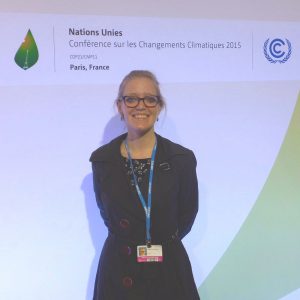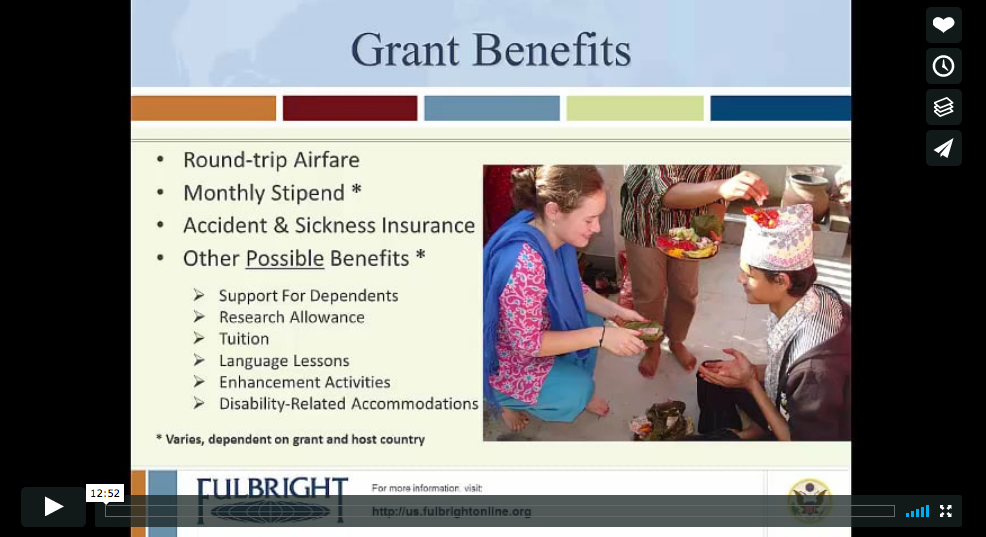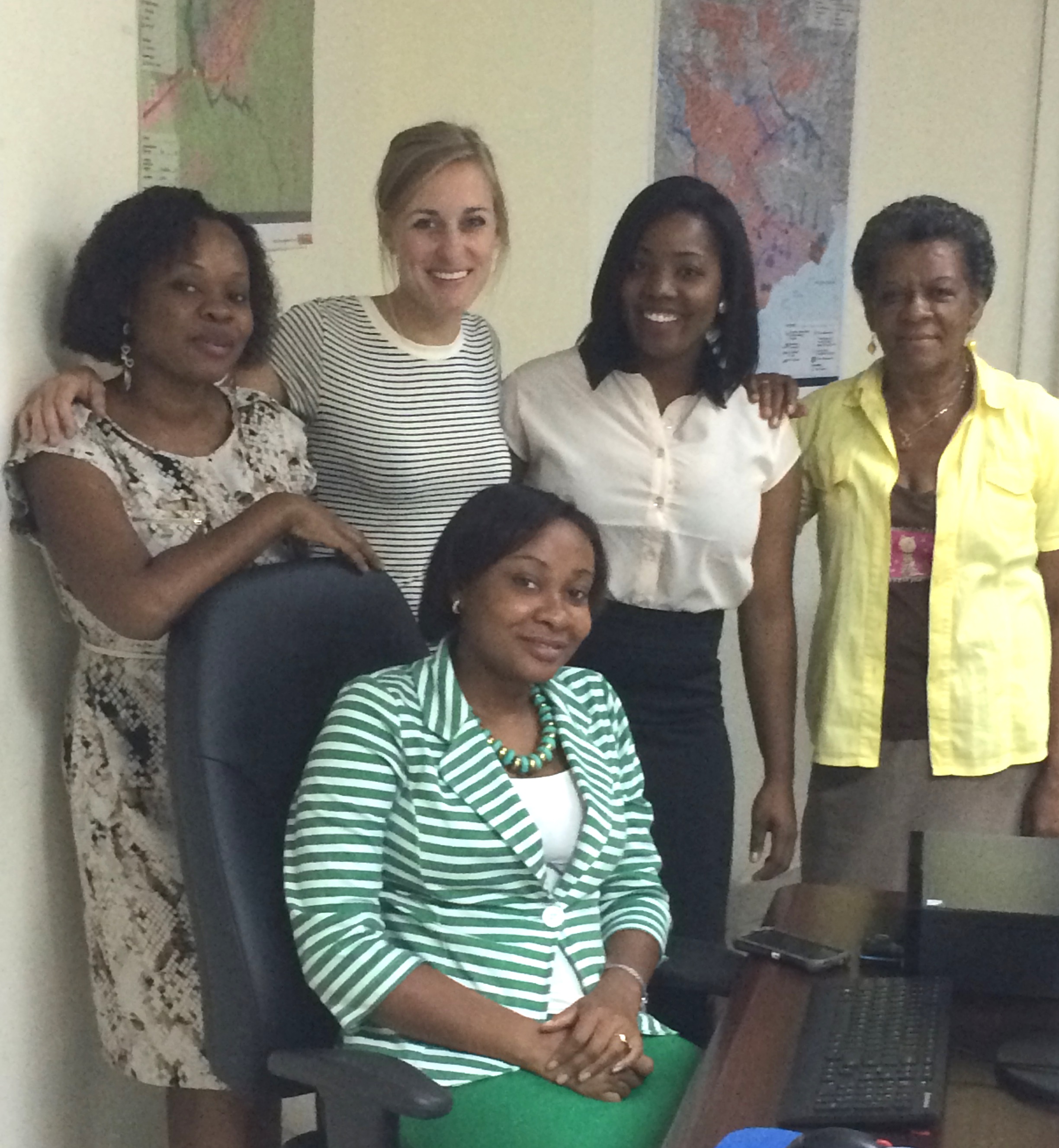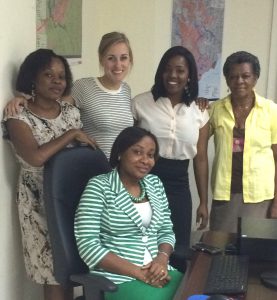
Marie-Claire Tuzeneu, 2014-2015, Fulbright-Clinton Public Policy Fellow to Samoa, attending the 2015 UN Climate Change Conference (COP21) in Paris with the Samoan Delegation – the perfect conclusion to her Fellowship with the Ministry of Natural Resources and Environment.
In honor of Earth Day and the United Nations’ Climate Signing Ceremony, we are sharing Fulbright-Clinton alumna to Samoa Marie-Claire Tuzeneu’s testimonial of attending the UN Climate Change Conference (COP21) last December.
Do you have a story to share about how you’re celebrating Earth Day today on your Fulbright grant? Send them here or share them on Twitter using hashtags #Fulbright and #earthday2016.
As a Fulbright-Clinton Public Policy Fellow, I was placed with the Samoan Ministry of Natural Resources and Environment (MNRE). A central part of my Fellowship was finalizing a review of Samoa’s climate change policies and programs and helping lay the groundwork for a new Climate Change Bill. This Bill will provide an official mandate for climate change work in Samoa and clearly delineate the roles and responsibilities of key government ministries. Finally, several months after completing my fellowship, I was able to rejoin my Samoan colleagues in Paris for the UN Climate Change Conference (COP21), assisting the delegation by preparing remarks, taking notes during initial negotiations, and conducting background research.
My time at MNRE gave me a direct look at some of the challenges countries face when using external funding from sources such as the Global Environment Facility (GEF) for national and local development projects. I was also able to learn some of the detailed steps involved in managing one of these projects, from holding an opening workshop, to hiring project staff and consultants, procuring equipment, and preparing annual and completion reports. And I was able to make more general observations about the day-to-day running of a Ministry. I now know, for example, that in Samoan Ministries, email is not used as extensively as for communications in the United States. For example, important inter-ministerial communications are often printed with a cover letter and distributed by courier.
Continue Reading




